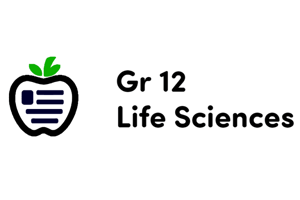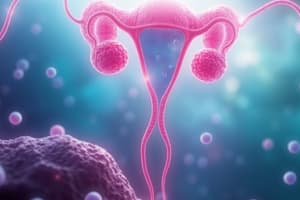Podcast
Questions and Answers
What is the primary purpose of meiosis in human reproduction?
What is the primary purpose of meiosis in human reproduction?
- To create haploid gametes for sexual reproduction (correct)
- To repair damaged tissues
- To produce genetically identical cells
- To contribute to asexual reproduction
Which structure develops into a placenta during human pregnancy?
Which structure develops into a placenta during human pregnancy?
- Chorion (correct)
- Amnion
- Blastocyst
- Zygote
Which hormone is primarily responsible for ovulation in females?
Which hormone is primarily responsible for ovulation in females?
- Follicle-stimulating hormone (FSH)
- Estrogen
- Luteinizing hormone (LH) (correct)
- Progesterone
What is the role of the scrotum in male reproduction?
What is the role of the scrotum in male reproduction?
How does fertilization typically occur in humans?
How does fertilization typically occur in humans?
Flashcards are hidden until you start studying
Study Notes
Meiosis in Human Reproduction
- Meiosis is a type of cell division that halves the number of chromosomes in a cell, producing gametes (sperm and egg cells)
- This process ensures that offspring inherit half of their genetic material from each parent.
Placenta Development
- The chorion, a membrane that surrounds the developing embryo, develops into the placenta.
- The placenta is a vital organ that facilitates nutrient and gas exchange between the mother and fetus, as well as waste removal.
Ovulation Hormone
- Luteinizing hormone (LH) is the primary hormone responsible for ovulation.
- A surge in LH levels triggers the release of a mature egg from the ovary.
Scrotum Role
- The scrotum is a sac of skin that holds the testes.
- The scrotum regulates the temperature of the testes, which is essential for sperm production.
Human Fertilization
- Fertilization occurs when a sperm cell penetrates and fuses with an egg cell.
- This typically happens in the fallopian tube.
- The fertilized egg, now called a zygote, then travels to the uterus where it implants and begins to develop.
Studying That Suits You
Use AI to generate personalized quizzes and flashcards to suit your learning preferences.




